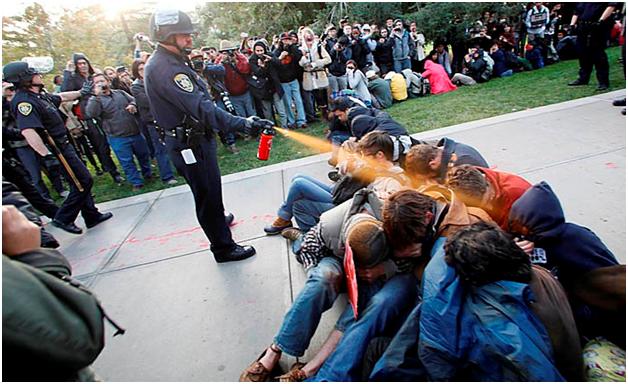The Reid Method - The Procedure on How the Police Interrogate Suspects

Recently I received a letter from a mom that reported that her son went through an interrogation procedure by police detectives for two hours before they determined that he was innocent and released him. Two full hours! She mentioned that she and her son read my article about interrogation tactics and tricks used by police too late, after the episode occurred. She further stated that had they read the article, it could have saved him from this terrible ordeal. They are currently attempting to sue the department and it's officers!
In my opinion, no interrogation session should ever last more than one minute. An interrogation session by it's very nature is hostile and accusatory! You, by law, especially if innocent, have no obligations to participate in any interrogation process. This is given and guaranteed to you by the U.S. Constitution, period!
Okay, let's talk about this again. Police officers, particularly police detectives, are trained to trick, lie, con, mislead, or trap you into one thing. His or her only goal is a confession! Even if police have a criminal's crime on video tape, the detective will attempt to get a confession before jailing the criminal. Why would he want this, the confession? Because it seals the criminal's faith in court! No attorney can get you off or properly defend you with a confession. That would be a daunting task!
Okay, let me reveal a secret tool of law enforcement. It's something called the Reid method. What is it? Basically to be brief, it's a series of interrogation methods to retrieve a confession from a suspect! It's basically broken down into seven (7) items. Here they are:
1) Direct Confrontation… first observe the behavioral manners of the suspect. Is he nervous, biting his nails, pacing the floor, fidgeting constantly with his hands, etc. This is usually done while you're placed in an interrogation room, with police in another room looking at a video tape. The last part of the scheme? As he or she enters the room and begin to interrogate you, they will make references to evidence, real or fictional. Did you get that last part, he or she can LIE! (please note, the Supreme court has approve this tactic!). Which brings me to another thing, many innocent people are nervous or fidgeted when detained by police!
2) Theme Development… He or she will propose a reason or reasons to you that will help you justify or excuse the crime! An example. "Listen, I know that you didn't mean to kill her, and if I or anyone was in that position, we would have done the same thing". Please note, you'll never be excused by law enforcement for a crime, not in an interrogation room!
3) Halt or Stop Denials… Interrogators are trained to recognize a denial BEFORE it comes out of your mouth! He will attempt to tell you he doesn't want to hear that as he has the evidence. Please note, the detective is trained that an absence of a denial in step two always indicates probable guilt. He is also taught that a cessation or weakening of denials is probable guilt and an impending confession!
4) Overcoming Objective… He or she will get close to you. In many cases they will move their chair directly in front of you, to confront and intimidate you. He or she wants to violate your safety zone. He wants you tense and nervous! In some cases, they will place their hands on your shoulder or knees, to established trust and a rapport (especially to the weak).
5) Notice of a Quiet Suspect…they are trained that if suddenly quiet, a confession might follow. Will attempt at this point to soften his voice, appear more fatherly or motherly! He's emitting through his body language… I care!
6) Bring the suspect into the conversation…at the very moment you begin to talk or attempt to negotiate, he moves in for the kill.
7) Give them an alternative… Give the suspect an unacceptable and acceptable reason for committing the crime. (This really plays with the head). If the suspect says something like "officer, if the person I killed did this or that, would I be justified in shooting them"? In any way the suspect attempts to reason the crime, that will make the detectives salivate!
Side notes:
For most serious felonies while being interrogated, other officers are usually in adjacent rooms observing the interrogation. If the main interrogator steps out the room for a few minutes, he or she is usually consulting with other officers on ways to break you down or may send another officer in to attempt to get a confession. In these rooms other officers are dealing with you as if their in a battle room. I've seen some even cheer on the interrogator while interviewing you, saying things like" he's ready to break, "we're close", and patting each other on the back. Meanwhile, your very life is on the line (I'm speaking of the innocent). There is no assumption of innocence, repeat, no assumption of innocence in these interrogations!
Always, no matter what, cut the games, lying, tricks and tactics by simply saying, "officer, I want an attorney". Case closed! They called this "lawyering up", and they absolutely hate it! Which brings me to another question? Why would a so- called professional police officer, sworned to protect and defend the constitution, get upset when Police Brutality Attorney you invoke the constitution ? Yes, we know why, bad cops!